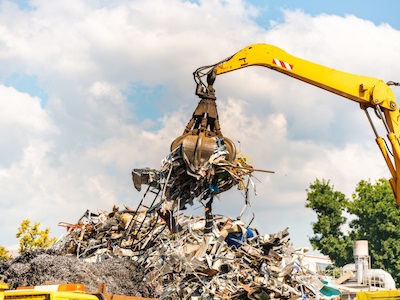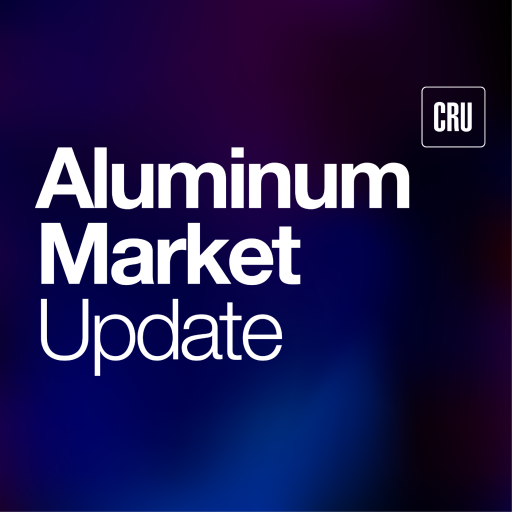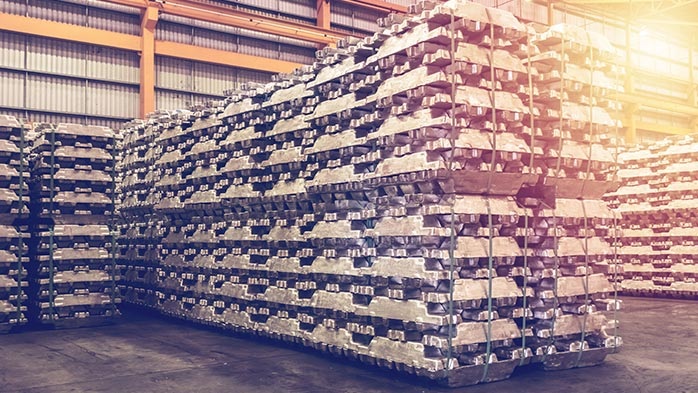Global Trade

October 20, 2025
Fake semis return to the market
Written by Greg Wittbecker
There may be some of the audience that is not familiar with the term “fake semis.” Here’s a bit of history.
The Chinese government established export rebates in 1985 to incentivize fabricators to export semi-fabricated products. This rebate was 10% of the value of the export product. It effectively amounted to a refund of the domestic Value-Added-Tax (VAT) producers paid for raw aluminum when producing sheet, extrusions, and other midstream and downstream products.
The rebate was a powerful incentive for exports. In fact, it was too good. It spawned the export of crudely fashioned “semi-fabricated” products to earn the rebates, only to see these products sold overseas for remelting.
This led to these products being coined “fake semis.” We saw continuous cast hot-band coils sold in this fashion, as well as redraw rod, extrusions and cast aluminum wheels.
Zhongwang Extrusions: A lesson in currency and tax evasion gone wrong
One example of the abuse of the Chinese export rebate program was the export of aluminum extrusions and aluminum pallets by Zhongwang Extrusions between 2011-2014.
China-based Zhongwang began exporting aluminum extrusions to Mexico and the U.S. around 2010. Mexico at the time consumed around 70,000 metric tons per year. Those who tracked Mexico import data at the time (when they actually published data, contrary to today), soon became alarmed at the size of the imports from China. Within a matter of one year, Chinese extrusion exports to Mexico reached over 700,000 metric tons.
At the same time, strange aluminum pallets showing up in Greater Los Angeles in staggering volumes.
Then as now, Beijing imposed very strict limitations on taking renminbi (CNY) out of China. This created real issues for high net worth individuals within China wanting to get their money out of the country.
For Zhongwang’s chairman at the time, Liu Zhongtian, the export of aluminum extrusions was a vehicle to get his net worth out of the China. The export rebate was a convenient benefit of his plan to “export his net worth” in metal form.
The key for Zhongtian’s plan to work was his company’s ability to monetize the extrusions once they got to both Mexico and U.S. That’s when the plan began to unravel.
Simply put, the sunk cost in the extrusions and pallets was to high to allow them to be sold at a profit in either Mexico or the U.S. Zhongwang refused to discount the products to fair market value so they ended up sitting on them for a long time, with disastrous consequences.
In Mexico, Zhongwang’s subsidiary company, Alumincaste, sat on their 700,000 tons so long that Mexican tax authorities finally got frustrated and threatened to tax the inventory. This lead Alumincaste to re-export some 500,000 tons to Vietnam.
In the U.S., Zhongwang’s U.S. affiliate Perfectus Aluminum eventually was indicted and convicted of $1.8 billion of tax evasion.
What is the problem now
Now, in 2025, the Trump administration has inadvertently set the stage for unethical people to game the system again.
Section 232 sets the tariff for primary aluminum and its derivative products at 50%. The list of derivative products is continually being revised and expanded. However, there is a major gap in the derivative products inclusions today, and that is aluminum-intensive automotive parts.
Automotive parts are levied a 25% tariff. Automotive parts are currently defined to include aluminum cast and forged wheels. This category also includea aluminum diecast and forged parts such as engine blocks, manifolds, suspension knuckles and the like.
Our sources say they are seeing aluminum wheels imported into the U.S. and Mexico from China and Morocco that are not being sold for their intended purpose. Instead, these wheels are being sold for remelting. These wheels are displacing legitimately produced A356 primary alloys.
They also provide silicon addition, as A356 alloy contains 7% silicon. Current conditions in primary silicon do not justify buying these wheels for that purpose, as scrap wheels are worth about $1.23 per pound and primary silicon can be had for $1.30.
However, there is a clear financial incentive for people to buy these wheels for primary foundry substitution, as they are clearing customs at half the duty for P1020 and even more for primary foundry alloys.
Why this matters
The importation of aluminum wheels as automotive parts, only to be sold as remelt metal is a clear example of circumvention. It is an indictment of both the sellers and the buyers. This cheats legitimate suppliers of A356 primary alloy who are losing sales to these fake wheels.
It also hurts the reputation of legitimate importers of aluminum wheels, who risk having their preferential duty of 25% removed in favor of treatment as a derivative of primary metal under Section 232.
This loophole also cheats the U.S. government from collecting the duty on remelt metal for which the wheels are being used.
Another concern is further extension of this abuse with other automotive parts. Aluminum cast and forged engine components could also be imported as parts, only to be resold for melting.








